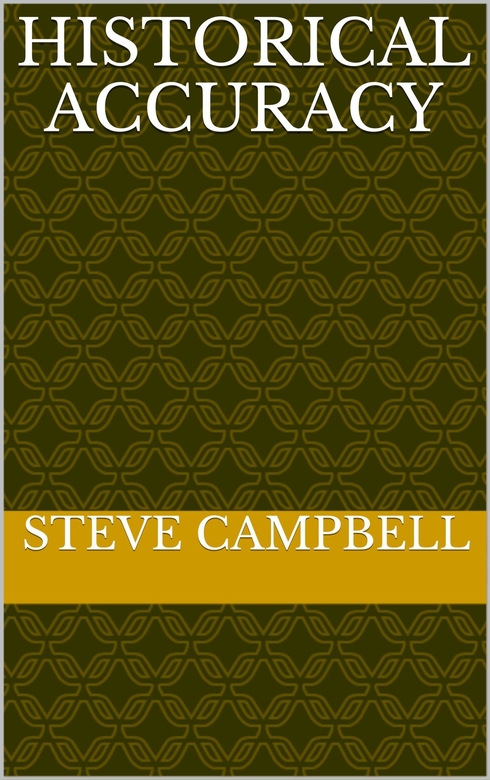
Utilizing a remarkably wide range of references, author Steve Campbell has gathered a lengthy aggregation of historical facts to explore the biblical accounts of the life of Jesus in Historical Accuracy.
As Campbell makes plain, there is ample reason to question one’s ordinary assumptions about Jesus, as it is limited to biblical text and standard accepted lore. This is especially the case when examining the notion of the promised land, the afterlife, and the oft-cited apocalypse. His goal is to uncover the real fact upon which such issues are based.
Beginning with Old Testament history, the author catalogs and diligently refutes common beliefs such as that Moses freed the Hebrews from the domination of Rameses the Great, or that Solomon, Saul, and David were kings of an independent Hebrew nation. These dissections of these storied forebears are vital, as their biographies provide a basis for many Christian concepts about Jesus.
Further, there is scant historical proof of Jesus’ existence, and much of what is accepted as accurate data about Jesus is taken from the works of Paul, who would have had his own motives for deifying such a man. Yet Paul’s accounts do not corroborate the Gospels – he would seem to have made Jesus into an angel (thus appearing without human birth) and to have postulated a credo that would serve earthly and political ends for his time, place, and stature.
One fascinating aspect of history brought to light by Campbell shows the many parallels between the life, deeds, and legacy of Jesus and those of both Julius Caesar and Augustus Caesar, which could suggest that all were equally regarded, or that the circumstances of one might be compared to, or confused with, those of another. Another possible comparison to the actions and legends surrounding Jesus can be found in the life of Vespasian, who was considered a savior, had a “star prophecy” imbued in his recognized status, and who, like Jesus, was attributed with specific healing miracles.
He looks especially close at what is called Apocalypticism, presenting it in the context of current scientific knowledge, which points to possible destructive scenarios for the Earth and the universe, any of which might occur in centuries to come, but none of which is absolutely, scientifically predictable since all are based on many varied, unrelated factors. As such, the book could be seen as hopeful, as some may see “the end of the world” as an inevitability, given the seeming crossover between world events and popular dogma.
Campbell, who worked on this volume for a number of years, presents his findings respectfully, which is essential in such a sensitive and potentially controversial subject. He does not push his readers to accept or discount any particular doctrine or common religious creed, inviting readers to consider the weight of his extensive research, underpinned by an impressive bibliography detailing the plethora of sources he has drawn upon, and judge for themselves.
Far from being a book meant to debunk Christianity, it instead provides a way for believers to understand the origin of their faith, and indeed defend it from common criticisms. In sum, Historical Accuracy is an eye-opening and fascinating examination of both religion and the historical record. Some may disagree with his findings, but there is no doubt the book will spur discussion, and deserves a careful and considered reading, whatever your religious perspective may be.
Book Links
STAR RATING
Design
Content
Editing
Get an Editorial Review | Get Amazon Sales & Reviews | Get Edited | Publish Your Book | Enter the SPR Book Awards | Other Marketing Services























Leave A Comment